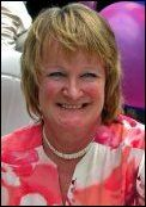How do you describe your job when you meet people at a party?
I formulate new foods. People tend to be very interested in that. I say I work hand in hand with the nutrition requirements of food. People think that all food is bad. If you’re a scientist working on food you must be doing something terrible to food. There’s this misconception that it doesn’t take science to get food to the supermarket shelves. I’ve worked on a wide range of brands and some big brands like the Benecol spreads, and other cholesterol lowering spreads. I’ve worked on Lucozade and Ribena. Lucozade is known as a drink, but I helped them to turn it into energy bars
What are the biggest implications your work will/could have in the future?
Changing lifestyles. If you back 50 years people didn’t have freezers or ready meals. Technology allows us to use science to create foods to meet our current lifestyle requirements.
Describe some of the highlights of your average day.
I do a lot of bench work. The highlight can be when you arrive at the solution which you know is going to have a big impact on your product and you’ve overcome some of the bigger hurdles along the way. My work is progressive and you generally know where it’s going to take you, but sometimes you have hurdles and Eureka moments
Describe briefly how your career has progressed to date.
I have over twenty years of experience working in the food industry. My first job I worked as a process technologist with Beecham Products R&D (now GlaxoSmithKline) as a Process Technician. When I was doing my degree I realised I didn’t want to stay in the lab all the time. My first job was working in a factory wearing a boiler suit helping to make stuff more efficiently…the opposite of what I’d been doing. I loved that it was a hands-on job. Eventually I became a New Products Team Leader. In 1985, I began working for Tate & Lyle Central Research & Development as a Product Development Manager, where I oversaw the launching of new retail products and ingredients globally, including sweeteners, flavours, bulking agents, and stabilizers/texturizers. In 1989, myself and a partner created and developed Lintech, a technical consultancy, employing up to 15 people with an annual turnover approaching one and half million dollars and worldwide clients. Our work resulted in more than twelve patent applications, key business strategy decisions, and over fifty new retail product launches. Lintech is now a part of Cadbury Schweppes research and development contract facilities. Finally I established Eureka, a product development consultancy focused on products for particular nutritional requirements. Eureka works by providing a network of specialists to bring foods for particular dietary requirements to the marketplace in the UK and mainland Europe.
How is your job cross-disciplinary?
My job is cross-disciplinary because it involves working with all aspects of business to bring a product to market. As a scientist I’m working with production/ manufacturing at one end through to marketing and advertising at the other. I respond to legal requirements as well.
How do you see your field developing over the next 5-10 years?
I see food development as a very dynamic industry. It’s continually changing to support different ways in which our society is also developing. It has changed tremendously decade to decade. We’re eating very differently from our parents and grandparents. I don’t see the momentum changing. When I started to work in the food industry I said to myself, well, you’ll always have a job. People have to eat. My field is about making it cost-effective, healthier, more indulgent etc. I think in the European arena, health will continue to be the focus. We’re getting a significantly older population, but while than population is getting older they want to be more active. 60 is the new 40 and nutrition is the key to maintaining lifestyle
What’s the most unexpected thing about your job?
I’m doing the job that I do because I love challenges. I don’t like routine at all. I get thrown plenty of challenges – technical challenges, time challenges etc. I travel quite a lot. I did a project last year where I had a company in the middle of India call me on a Monday and say “get here as soon as possible”. They wanted a new product, a snack/on-the-go bar, for the Indian market. The factory hasn’t made it before. I helped them launch it and it’s doing well.

